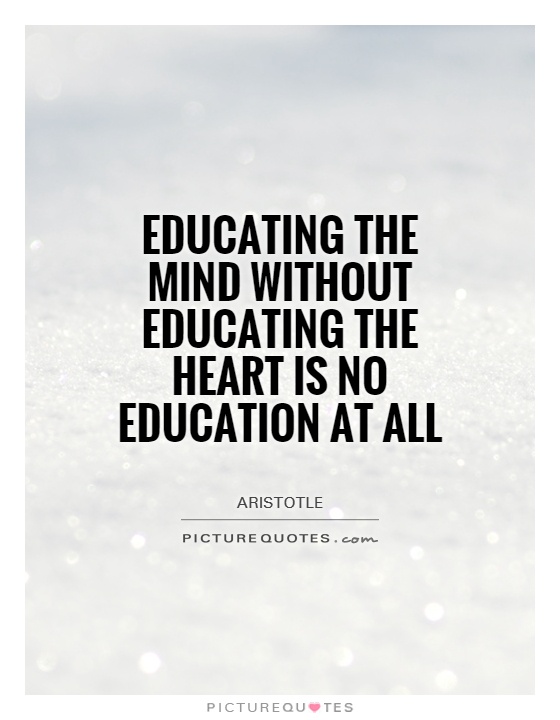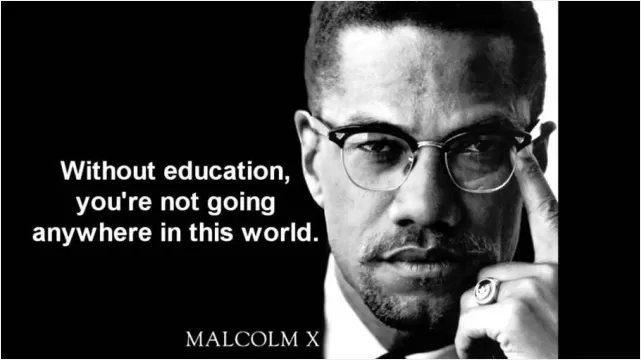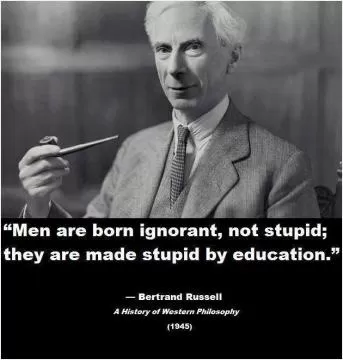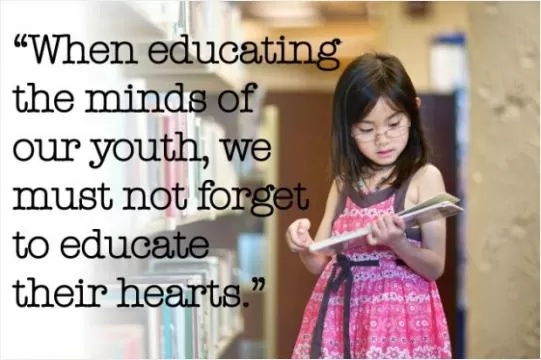Educating the mind without educating the heart is no education at all

Educating the mind without educating the heart is no education at all
Aristotle, one of the greatest philosophers in history, believed that true education goes beyond simply acquiring knowledge and skills. He emphasized the importance of educating the heart, or the moral and emotional aspects of a person, in addition to educating the mind. In his view, a well-rounded education should cultivate both intellectual and ethical virtues in individuals.For Aristotle, education was not just about memorizing facts and figures, but about developing a deeper understanding of oneself and the world around us. He believed that true wisdom comes from a combination of intellectual knowledge and moral character. In his famous work, "Nicomachean Ethics," Aristotle explores the concept of virtue and how it is essential for living a good and fulfilling life.
According to Aristotle, educating the mind without educating the heart is incomplete because it neglects the development of moral virtues such as courage, temperance, and justice. These virtues are essential for guiding individuals in making ethical decisions and living a virtuous life. Without a strong moral foundation, knowledge and intelligence can be used for selfish or harmful purposes.
Aristotle also believed that education should aim to cultivate emotional intelligence and empathy in individuals. By understanding and managing their own emotions, as well as empathizing with others, individuals can develop stronger relationships and contribute positively to society. This emotional intelligence is just as important as intellectual intelligence in navigating the complexities of human interactions and relationships.












 Friendship Quotes
Friendship Quotes Love Quotes
Love Quotes Life Quotes
Life Quotes Funny Quotes
Funny Quotes Motivational Quotes
Motivational Quotes Inspirational Quotes
Inspirational Quotes